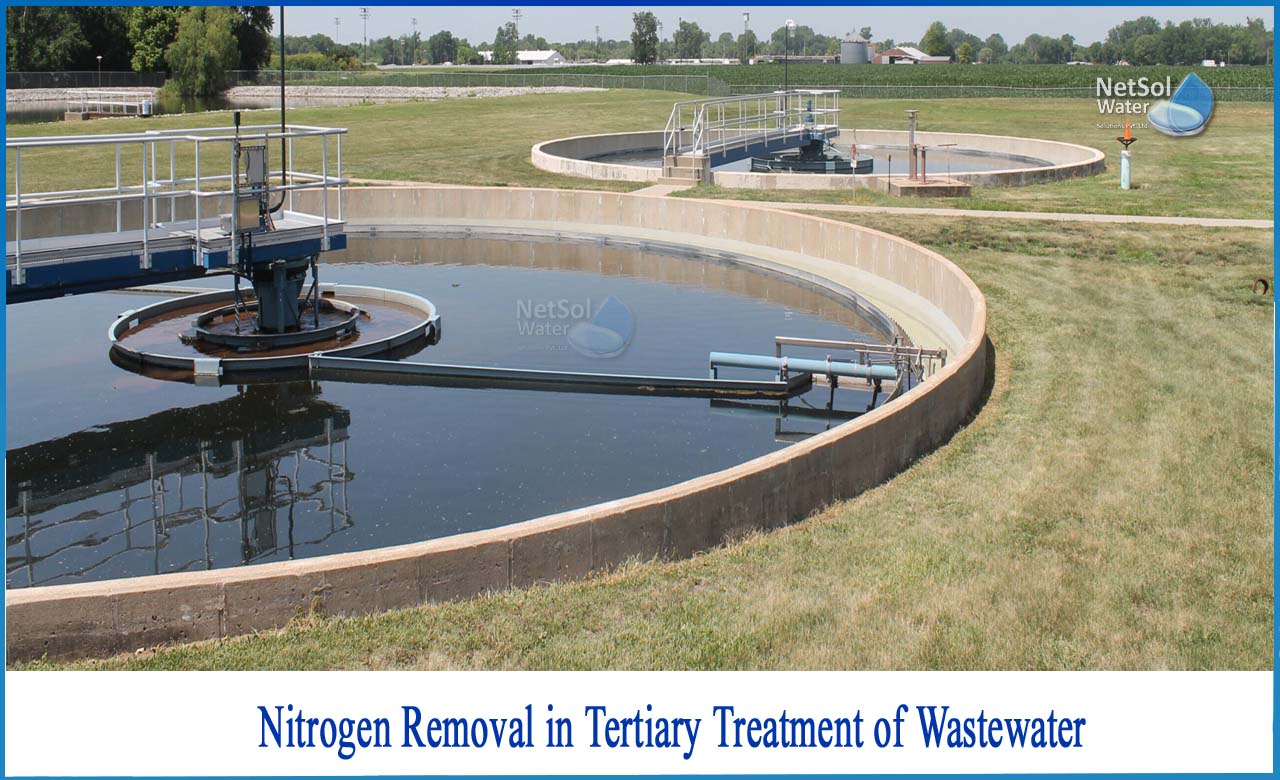What is Tertiary treatment of wastewater?
Most wastewater treatment systems have at least two primary and secondary treatment procedures, as well as some extra preparatory approaches.
Physical techniques such as filtering and settling are used to remove grit, debris, oil, grease, and certain lighter materials in primary treatment, which generally eliminates 50 percent to 70 percent of the suspended solids in wastewater. Secondary treatment uses beneficial bacteria to break down dissolved and suspended biosolids utilizing additional biological processes such as aeration and activated sludge treatment.
Tertiary therapy is a third degree of treatment that is more sophisticated and severe. The final stage of the multi-stage wastewater treatment process is tertiary water treatment. Inorganic chemicals, bacteria, viruses, and parasites are all removed during the third stage of therapy. The treated water is safe to reuse, recycle, or discharge into the environment after these dangerous chemicals have been removed.
For many purposes, primary and secondary therapy are typically adequate. Those that utilize tertiary treatment attain higher degrees of purity, which is necessary to fulfil the severe criteria that regulate water reuse, particularly in public water sources.
Need of tertiary treatment
The main purpose of the tertiary treatment is to ensure that the treated water which is to be released on to the environment is biologically accepted by all other freshwater organisms such as weeds and algae. Processes such as physical water treatment, lagooning, and excessive nutrient removal are included in this section of the treatment. Before moving on to the final phases, be sure the effluent quality of the released water has improved. Secondary effluent may get tertiary treatment to eliminate leftover nutrients and pathogens, as well as to reduce total dissolved solids to fulfil reuse quality criteria.
How to remove Nitrogen in Tertiary treatment of Wastewater?
Sewage, agricultural runoff, and numerous industrial effluents are examples of nutrient-rich wastewater.
‘N’ and ‘P’ are the nutrients that cause the greatest worry. Proteins, amines, amino acids, and urea are the most common nitrogen compounds found in home sewage. The bacterial breakdown of these organic elements produces ammonia nitrogen in sewage. The nitrogen compounds are formed when proteins decompose biologically and when urea is excreted in bodily waste. Organic nitrogen refers to nitrogen that is found in complex organic compounds. Organic nitrogen may be biologically converted to free ammonia (NH3) or to the ammonium ion (NH4+) by one of several different metabolic pathways.
If molecular oxygen is available, ammonia nitrogen, the most reduced nitrogen molecule found in wastewater, can be biologically converted to nitrate (under aerobic condition). Organic nitrogen and ammonia are the most common types of nitrogen in wastewater. If the treatment durations are long enough, nitrification can occur in biological treatment units. In general, the conversion of organic nitrogen to ammonia is high in the HRT employed in secondary treatment, whereas nitrification may be little. Ammonia removal may be necessary owing to the oxygen demand exerted by ammonia (approximately 4.6 mg of O2 per milligrams of NH+-N oxidized) and other environmental considerations.
Air stripping, biological nitrification, and denitrification are the most prevalent methods for removing ammonia from wastewater.
What is Air stripping?
Converting ammonium to a gaseous phase and subsequently distributing the liquid in air is the process of air stripping. Ammonia stripping is a simple desorption procedure for reducing ammonia levels in wastewater. Some wastewaters have a lot of ammonia and/or nitrogen-containing chemicals that can easily turn into ammonia. It is frequently easier and less expensive to extract nitrogen from wastewater as ammonia than converting it to nitrate-nitrogen first.
Advantages of air stripping
a) If the pH and air temperature stay consistent, the process is quite straightforward and is unaffected by wastewater fluctuations.
b) Ammonia stripping is a mechanical procedure and creates no backwash or regeneration.
c) Toxic substances that might disturb the operation of a biological system have no effect on ammonia stripping.
d) Ammonia stripping is a controlled process for selected ammonia removals.
Limitations of air stripping
a) Water must be re-pumped to the stripping tower. Pumping requires higher maintenanceand power requirements.
b) Scale formation can be removed hydraulically in most cases but not all, resulting in a needto pilot test at most locations.
c) Ammonia stripping cannot be performed in freezing conditions (unless sufficient heatedair is available). Ammonia elimination is significantly reduced by fogging and ice.
d) While ammonia is usually discharged to the atmosphere at low level (6 mg/m3), this maybe unacceptable in certain locations due to air quality concerns or regulations.
e) Ammonia stripping does not remove nitrite and organic nitrogen.
f) Air pollution problems may result from ammonia and sulfur dioxide reaction.
g) Air stripping often requires the addition of lime to control pH, which may create operation and maintenance concerns.
h) Noise may be a problem caused by the roar of the fan.
Conclusion
Water shortage is a big issue that affects people all around the world. Human activities have contaminated a large portion of the water that may be drunk. Nature plays a part, but the primary source of water scarcity is increased use and inefficient use. A significant portion of the problem may be handled if wastewater treatment is treated seriously and safeguards are taken at every step to enhance water quality.
Netsol Water is a pure-play technology company that offers a variety of wastewater-related solutions around the world, including resource conservation, optimization, recycling, and reuse.
Netsol Water is Greater Noida-based leading water & wastewater treatment plant manufacturer. We are industry's most demanding company based on client review and work quality. We are known as best commercial RO plant manufacturers, industrial RO plant manufacturer, sewage treatment plant manufacturer, Water Softener Plant Manufacturers and effluent treatment plant manufacturers. Apart from this 24x7 customer support is our USP. Call on +91-9650608473, or write us at enquiry@netsolwater.com for any support, inquiry or product-purchase related query.



